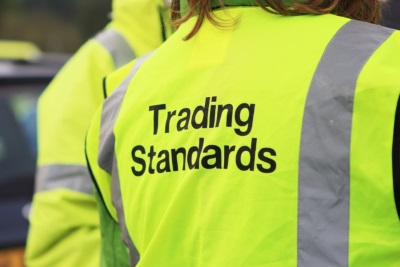
The UK's horsemeat and counterfeit hoverboard scandals occurred because of massive cuts over the years to trading standards services, UK watchdogs say.
Since 2009, the number of staff employed by trading standards has been slashed by 56 per cent, with spending in some areas cut by 60 per cent, which has exposed people to scams and unfair trading, and has cost the UK almost £15bn a year, the National Audit Office (NAO) says.
According to the NAO, some services now have only one qualified officer. "Despite this lack of funding, local trading standards teams are expected to enforce 263 different pieces of legislation for different government departments with little direction from government on the priority of these. [The system] has not yet demonstrated that it provides value for money in protecting consumers from modern scams, unfair trading and unsafe goods."
The NAO said while trading standards were having an impact, threats were increasing and were becoming more wide-ranging, leaving consumers inadequately protected in several areas.
The government spends about £165m on tackling fraud, of which around £125m is for council trading standards and £18m to Citizens Advice.
Leon Livermore, chief executive of the Chartered Trading Standards Institute said the amount spent on trading standards had fallen from £213m in 2011. "It's not surprising the system is struggling to cope. It has left consumers inadequately protected and has helped to set the conditions for issues like the horsemeat and hoverboard scandals and the ongoing problems with Whirlpool and VW."
Areas where there is particular concern are over unsafe goods and the growing counterfeit black market. There have been a number of high-profile cases in recent years, including counterfeit medicines, fake makeup containing carcinogens, and electrical items such as tumble dryers catching fire. In December last year, more than 400 fake hoverboards were seized by UK officials. Concerns had been raised regarding the safety of the toys, with a number of fires reported in the US because of the battery units.
The NAO also mentioned marketing scams, which particularly target the elderly, and e-crime, which fools the younger generation, as other areas where consumers were not receiving adequate protection.
National Trading Standards was set up in 2012 after a previous NAO report made recommendations for a body to tackle fraud and unfair trade. While figures suggest it has prevented £345 million worth of losses since April 2014, the NAO admits this just scrapes the surface of the problem, with funding limited and systems struggling to keep pace with the growing breadth and sophistication of fraud.
It was revealed that the National Trading Standards team "ran out of money about two-thirds of the way through the 2015/16 financial year", which meant it could not undertake enforcement cases after that time. And the 2016/17 year is no better, with the NAO saying the entire budget was already committed by April this year.
This is not the first time a struggling trading standards has come under fire. Just last month, a review by the Food Standards Agency recommended that the National Food Crime Unit be given additional powers to help fill the gap where local authorities are struggling to cope. A separate FSA report also noted a 6 per cent drop in local authority enforcement staff compared with the previous year and noted issues with workload.
Vickie Sheriff, director of campaigns and communications at Which?, told The Guardian: "The NAO paints a worrying picture of a system struggling to deal with the scale of problems that consumers now face. With consumer losses of around £14.8bn annually, it cannot be right that some Trading Standards services have suffered dramatic cuts leaving people so poorly protected against scams and other threats. The government must take action urgently to ensure that a sustainable and robust system is in place to protect consumers."
A government spokeswoman said the NAO highlighted areas where more work was required and the government would consider the findings with the publication of a green paper in Spring 2017.
©
SecuringIndustry.com





